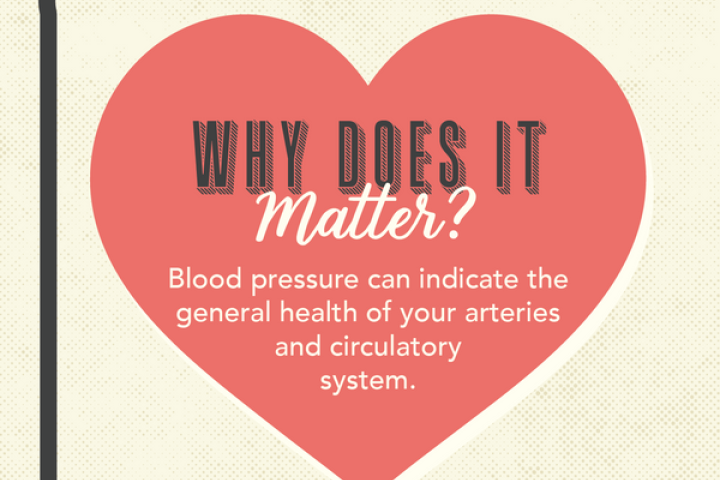Do You Know Your Numbers? Find Out Why Blood Pressure Matters.
Every time you visit your doctor, someone checks your blood pressure. Do you know what those numbers mean? This is the perfect opportunity to learn!
What Is Blood Pressure?
Blood pressure is essentially the force exerted by the circulating blood on the walls of blood vessels. It is influenced by the heartbeat rate, the force of each heartbeat, and the elasticity of the arterial walls.
What’s a Healthy Blood Pressure?
- A normal, healthy blood pressure is generally considered to be 120/80.
What Do the Numbers Mean?
- The top number (120) is systolic pressure. It indicates the maximum pressure in the arteries when the heart contracts.
- The bottom number (80) is diastolic pressure. It reflects the pressure in the arteries when the heart is resting between beats.
Why Does Blood Pressure Matter?
Blood pressure is a vital indicator of your arterial and overall circulatory system health.
Increased blood pressure puts a strain on your blood vessels, heart, and the entire circulatory system as they work to distribute blood throughout your body. However, changes in blood pressure are usually unnoticeable without measurement.
A single high or low reading does not necessarily mean there is a chronic issue. Blood pressure can fluctuate temporarily due to stress, diet, physical activity, and other factors. Nonetheless, it is crucial to consult your doctor about any high readings.
Maintaining a Healthy Blood Pressure
Maintaining the elasticity and openness of your arteries helps keep blood pressure within a normal range. Thankfully, adopting certain lifestyle habits can aid in managing your blood pressure.
- Exercise
- Engaging in any form of physical activity benefits your circulatory system. Activities can range from walking, yoga, and weightlifting to biking, swimming, or playing soccer with friends. The US Department of Health and Human Services advises adults aged 18-64 to partake in 30 minutes of activity daily, totaling 150 minutes per week. For optimal benefits, breathe deeply during exercise, filling your lungs completely.
- Diet
- Increase your intake of fruits and vegetables, which are rich in potassium and magnesium, nutrients that help balance blood pressure. Limit salt intake to avoid water retention and potassium depletion.
- Throw Out Tobacco
- Avoiding tobacco is crucial, as its use affects blood pressure among other health aspects.
- Stress Management
- Keeping stress levels under control is beneficial for both you and your blood vessels. Find stress-reducing activities that work for you, such as taking hot baths, exercising, getting massages, or coloring, and incorporate them regularly into your routine.



Leave a comment